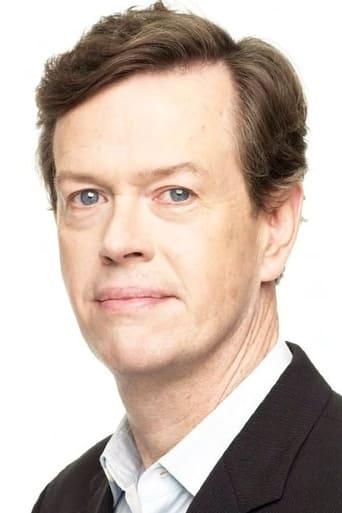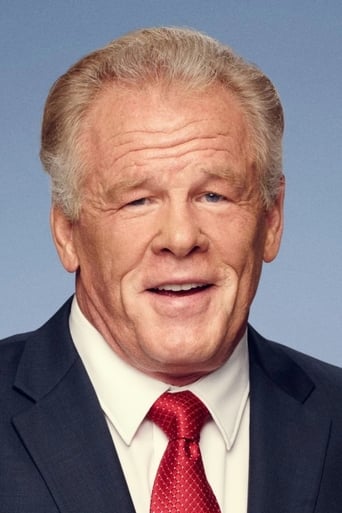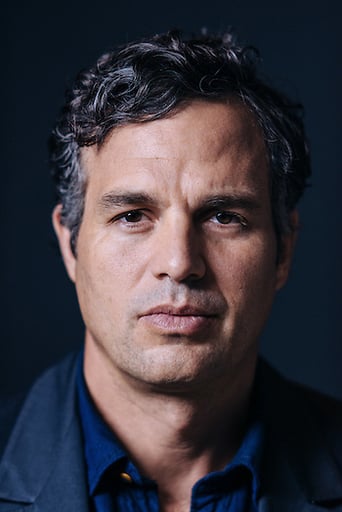Diagonaldi
Very well executed
Sexyloutak
Absolutely the worst movie.
ActuallyGlimmer
The best films of this genre always show a path and provide a takeaway for being a better person.
Staci Frederick
Blistering performances.
Roland E. Zwick
The time: August 1968. The place: the Chicago Amphitheater, host to that year's Democratic National Convention. The event: the riots that broke out when an assortment of "hippies, yippees and just plain kids" took to the streets to protest the US' continuing involvement in the Vietnam War. The march and sit-in, originally billed as a "Festival of Life," turned violent when the ramped-up police and National Guard forces, estimated at well over 25,000 strong, began tear-gassing and billy-clubbing the demonstrators on the last night of the convention – in full view of the nation's citizens who watched in shock and amazement as it unfolded on their TV sets at home.The demonstrations were largely organized by The National Mobilization Committee to End the War in Vietnam, from whose leadership ranks would come many of the men destined to go down in the annals of anti-establishment folklore as the Chicago 7 (the 10 of the title comes from the inclusion of Black Panther co-founder Bobby Seale, who had his trial severed, and the two lawyers). After the incident, these men were placed on trial, charged with conspiracy and with violating the Anti-Riot Act of 1968. All seven - David Dellinger, Tom Hayden, Abbie Hoffman, William Kunstler, Jerry Rubin, Rennie Davis and John Froines – were to wind up spending at least some time behind bars for their "crimes." Written and directed by Brett Morgan, the documentary "Chicago 10" blends amazing archival footage with animated re-enactments of the trial – based on actual court transcripts – with A-list actors like Hank Azaria, Nick Nolte, Mark Ruffalo, Roy Scheider and Liev Schreiber providing the voices.The movie provides a fascinating glimpse into not only those turbulent times but the minds of the men who helped to bring them about. For instance, it's amusing to note how the defendants treated the trial itself almost as if it were some form of subversive street-theater, in the hopes of antagonizing the conservative judge, Julius Hoffman (they really DO seem to have gotten under his skin), and destroying the court's authority in the process. Also, in the months when the trial was going on, the defendants would fan out across the country on their off-hours, lecturing on colleges campuses – with most of the speaking fees going to defray the cost of the trial - raising awareness among the students and becoming counter-culture celebrities and spokesmen for a whole new generation of politically activated youngsters. Then the men would return to Chicago to resume their roles in the trial.The final twenty minutes or so of the movie - as we watch the government forces move in to disperse the protesters and the subsequent chaos that ensued - are riveting and eye-opening to say the least. But the whole movie is engaging and informative and reminds us of just how fragile a thing the right to free speech and assembly can be even in a country that prides itself on that being the very foundation upon which its democracy is built.
jamesstreet
The Kid Stays in the Picture was a great documentary with a refreshing style that managed to keep me hooked into a subject that I honestly wasn't very interested in. So I was extremely excited to see Brett Morgen creating this documentary about history that I was very interesting in and.. Well, Morgen probably reached a little too far on this one.This documentary is a mix of the very powerful archive footage of the demonstrations and events leading up to them, and a rather insipid animated recreation of the trial. There are no retrospective interviews (many of the 8 are now deceased) and there is no narration - both omissions that suit the style of the director and help emphasize the time and place of the events.The archive footage could possibly have carried the film by itself. But this documentary is also about the trial. Without any footage or audio of the trial, how do you recreate it so that it appears as the farce that it was - while doing justice to the amazing news footage of protesters being maced and beaten? To do so would honestly have been an amazing accomplishment. Animating the trial was a bold move, but the end result is visually inadequate and mixes poorly with the news footage.I have no problem with the use of animation, but the animation itself is of very low quality and isn't rather creative. For the trial scenes, I believe the intention was to create a comic look and feel to highlight the nature of the trial itself - but the uninspired designs are too smoothly rendered with wooden mo-cap movement that appears borderline uncanny valley. Other demonstration scenes were animated in a hand drawn/cut out style at an extremely jerky 3-4 frames per second that is difficult to watch to say the least - thankfully they are short. The one redeeming quality of the animation is the voice acting which is top notch across the board, even if Hank Azaria's Abbie Hoffman sounds a lot like Moe from The Simpsons.My other complaint is the soundtrack, which is about half a mix of 90's rap and another half a mixed bag of pop and metal. The music has no connection to time or events and seems to only take away from the authenticity of the events. I've read the interviews where Morgen describes this movie as being about now, and not 1968 - but I think that is a disservice to the Chicago 8. Sure, there is a war going on right now as was then - but in 2008 young people are more likely to protest high gas prices than the current war.
MisterWhiplash
Brett Morgan's Chicago 10 might not deliver any groundbreaking revelations about one of the most notorious of protests-gone-bad sagas in American history, where after four days and nights (mostly) non-violent protesters and loaded-for-bear police clashed horrifically on the streets of Chicago and then the masterminds in the 'Yippies' (i.e. Abbie Hoffman, Jerry Rubin) were put on a trial where all were sent to some jail time. It's not about revelations, per-say, though one might say that the story itself- encompassing 1968's volcanic political and societal tumult- could be a revelation for some younger audience members numbed out by cable news and desensitization. What it's about is presentation, of taking apart agitprop of the period, assembling it together with rotoscoping of the Chicago 7 trial, music from the likes of Rage Against the Machine, Eminem and the Beastie Boys, and loads of raw footage documenting much of the actual on-the-street and behind-closed-doors action in Chicago. It's probably the most striking sort one's seen since The Filth and the Fury, however in a context of instead 70s punk rock 1968's culmination of anti-war demonstration.It's an ugly, breathtaking and (unlikely) savagely funny movie, where older viewers can experience their memories of a time and place in a sometimes bizarre and sometimes sobering context (of hindsight being '20-20') and younger viewers (i.e. guys and gals in their 20s and 30s) get a peek at an era that seems all the more ballsy in the perspective of America's involvement in Iraq. Morgan also does something a little dangerous, but successful, in portraying the "heroes" for all they were in this time and place: stalwart idealists in the guise of immature not-totally American insurgents whose 'spiritual experimenter' was oft-meditating poet-dude Allen Ginsberg. What to think of these men like Abbie Hoffmann and the leader of the Black Panthers? A little biased? Perhaps - but in light of how the trial went down, why carp?It's editing is fast-paced, but not too much so, and its technique of animation is multi-faceted. On top of the rotoscoping (some of the best in recent memory along with A Scanner Darkly), there's a night-time demonstration done in 2-D, like something out of a nightmare with its somewhat primitive movement, and then the figures of the Chicago 7 appearing before crowds (usually with great voice-work from Hank Azaria, Dylan Baker and Mark Ruffalo, plus a great career finale from Roy Scheider as the cantankerous judge in the trial). It's the kind of visual assault that for the prepared is like a bit of ironic bliss.If you've seen the trailer, or know a bit about the trial, or about Chicago in 68 (which Hunter S. Thompson, looking back in just 1972, said brought him to tears), or just about the friction between anti and the establishment, you'll know if this is for you. It certainly is like nothing else you'll see this year as a piece of sublime, subversive history. 9.5/10
andrew-huffaker
I just attended a screening of Chicago 10 at Sundance. Wow. What a unique and important movie. The mix of archival footage and animation blend together much better than I anticipated. The animated scenes are primarily courtroom scenes. The dialog during the animated courtroom scenes are taken directly from the court transcripts. The soundtrack is perfect. There is a combination of old and new including songs from contemporary artists such as Rage Against The Machine & Eminem. Although archival footage was used, and court transcripts were used as dialog, I'm not too sure that I'd call this film a documentary. This film was moving, powerful, and well worth seeing. I thought that the film was such a gem that I'm trying to get a tickets to see it again during the festival.





